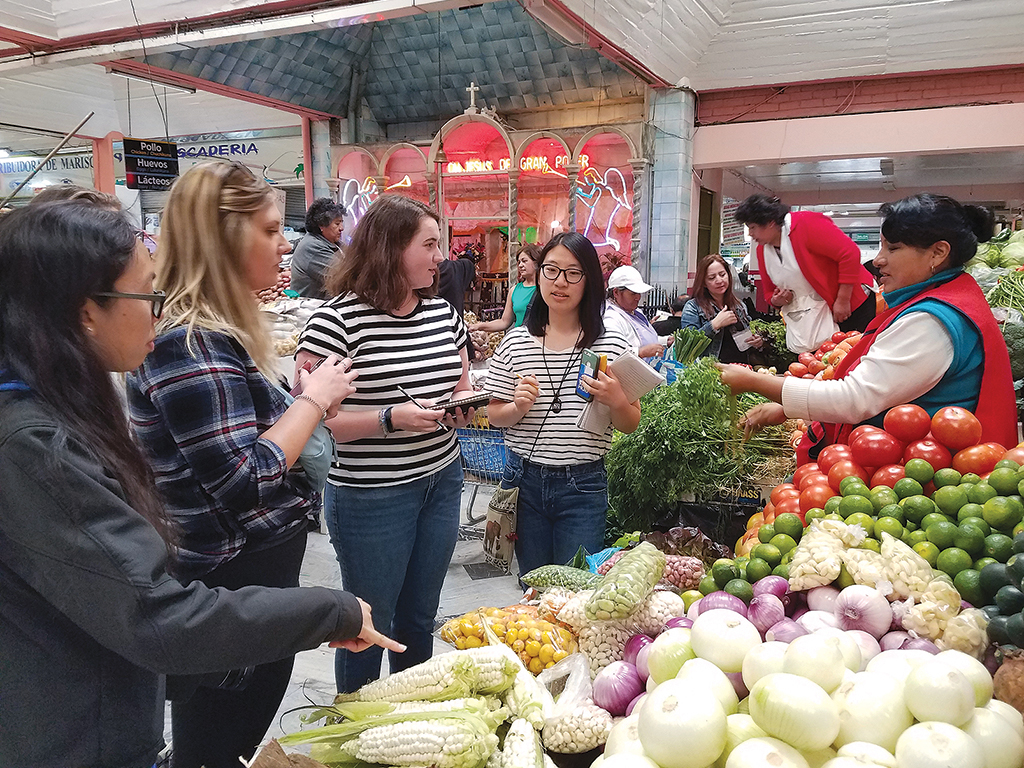Sustainable action

In September, I had the honor of representing Wheaton at the launch of the University Global Compact, a network of higher education institutions from around the world that are committed to achieving the United Nations’ Sustainable Development Goals (SDGs). The plan encompasses a broad range of objectives from ending poverty and achieving gender equality to tackling climate change and working to preserve our oceans and forests.
Given the relatively small size of the college, some people might ask, “What can Wheaton contribute to addressing such enormous global problems?” The answer: a lot. We are an innovative, active community of learners and leaders with global reach.
When it comes to promoting gender equality, for example, our college ranks 20th in the world—of nearly 500 institutions ranked—and third among U.S. colleges and universities. That accolade comes from an in-depth examination of Wheaton’s policies, practices and results, including the proportion of first-generation students who are women, women-focused mentoring programs and scholarships, and positive human resource policies.
Creating a more sustainable and more just society is implicit in Wheaton’s educational mission. The breadth and depth of our liberal arts and sciences curriculum, combined with experiential learning, prepares students to be creative, analytical thinkers capable of making a difference wherever they find themselves.
Across the curriculum, Wheaton faculty members and students are tackling the big problems that our world faces through their teaching and learning. Faculty-led study abroad courses offer some particularly vivid examples.
For nearly a decade, Professor of Anthropology Donna Kerner has been leading the study abroad course “Tanzania: Education and Development.” Students who take the course learn about the considerable challenges facing countries throughout sub-Saharan Africa while they teach English in village schools and immerse themselves in the culture. Climate change has been one of the major issues that students have confronted—from observing how drought affects the migration of game and the livelihood of Maasai pastoralists to the impacts on the country’s coffee growers. Among other things, the course has inspired the establishment of a local tree nursery, named in Wheaton’s honor, that is working to improve the health of the local environment and of the economy.
The impact of the Tanzania course has been magnified by the fact that Professor Kerner and her students have fostered connections between our local Norton public school system and the Tanzanian schools in which they work. Not only does this enrich the learning of African and American schoolchildren alike, but through reflection and sharing, it also deepens the learning of our own students.
There are many more examples: an interdisciplinary course designed to explore the connections between food, culture and biodiversity in Ecuador; an intensive exploration of tropical rainforest and reef ecosystems in Costa Rica and Belize; and an investigation of the impact of the changing climate in Iceland. These courses offer students the chance to experience firsthand the challenges we face and the opportunities for addressing these issues.
Environmental sustainability is an area of great interest to students, who are active as advocates for conservation and as scholars. The establishment of organizations such as the new Sustainability Board testify to student interest as does the more than 30 percent increase in both graduates with environmental science majors and applicants for admission who identify this field as their intended course of study.
The college has been active as well, adopting practices that conserve energy and resources, as this issue of the magazine illustrates. This is important, both as a way to reduce the college’s impact on the environment but also as a means to steward our financial and institutional resources for the long term.
However, the most far-reaching contribution that Wheaton can make toward sustainability resides in our educational
programs. By bringing the full power of the liberal arts to bear on the concerns of the world, we are preparing future leaders to create innovative solutions to big challenges—and to act on them.
